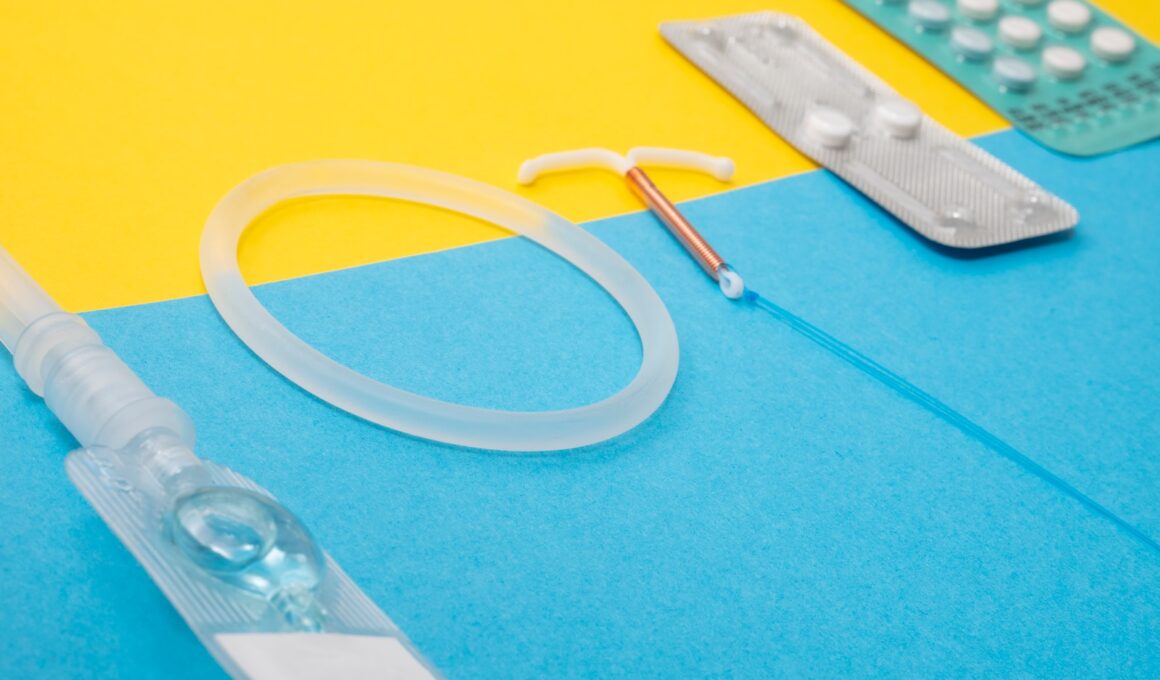Pregnancy, birth and breastfeeding can have a huge impact on your sexual desire. That’s why it’s important to set your own timeline for resuming sex and use backup contraception, such as condoms.
Most forms of birth control start working immediately, but it may take a week for hormonal methods like the pill and patch to become fully effective. Adding condoms will decrease your chances of getting pregnant and STIs.
1. IUDs and implants
IUDs (Mirena, Kyleena, Liletta, and Skyla) are little T-shaped plastic devices we insert into your uterus. They contain no estrogen but lots of progestin to prevent pregnancy by inhibiting ovulation and thickening cervical mucus so sperm can’t get to the egg to fertilize it. They’re effective for 7 to 12 years.
Like the pill, IUDs can take seven days to start preventing pregnancy, so you need to use a backup method or abstain for a week before having unprotected sex. However, unlike the pill, which doesn’t protect against sexually transmitted infections, IUDs and implants do. They’re also very expensive upfront and aren’t covered by many health insurance plans. That’s a major reason why women who want them are having to turn to crowdfunding projects like CHOICE. (More on that here.) But if you do decide to get an IUD, here’s what you need to know.
2. The pill
If you use the pill as your main form of birth control, you need to take it at least 12 hours after unprotected sex. It’s also important to remember that if you miss a pill, it won’t work for the rest of your cycle. That’s why it’s always good to have a backup method, like condoms.
For some girls, the pill can cause side effects, but these usually improve over time. Your doctor or NP can help you find the right pill for you.
You can also try hormone-free options, like the pill and patch. These methods prevent pregnancy by blocking the ovaries or using hormones to make it difficult for an egg to implant in the uterus. They also protect against STIs. It can take a few days for these methods to start working, and they’re not 100% effective. It’s best to use a backup method or abstain from sex.
3. The patch
A patch that you put on your skin each week and that releases hormones to stop you from ovulating and getting pregnant. You take the patch off during your menstrual cycle for three weeks, then you put it back on for the rest of your cycle. The pill and the patch have progestin and estrogen, which prevent ovulation, thin the cervix and cervical mucus, and keep sperm from reaching the egg. They also protect you from sexually transmitted infections and diseases.
Some methods start working right away, like IUDs and implants. Others take time to become effective, like the ring, the pill and the shot. Use backup birth control like condoms or a diaphragm until you’re using your preferred method consistently. You can also practice natural family planning, which involves tracking your basal body temperature to figure out when you ovulate so you can avoid unprotected sex.
4. The ring
The ring is a soft rubber-like cylinder that fits in your vagina and stops sperm from reaching the uterus. You use it for 3 weeks, then remove it for 1 week (this is your menstrual period). It’s 99.7 per cent effective if used properly, but it can be less reliable if you forget to insert it or take it out on time. You’ll need a prescription for this birth control method.
Recovering from childbirth takes a lot of energy, so you may find that intimacy is the last thing on your mind at first. But there are lots of ways to grow intimacy with your partner that don’t involve sex.
5. The shot
For birth control that’s effective right away, use a barrier method (like condoms) or a hormonal method. Hormonal methods prevent pregnancy by preventing ovulation or changing the conditions in your uterus and cervix (2, 3). They include hormone pills, patches, a thin ring that a provider inserts in your arm, and long-acting reversible contraceptive implants. You can also get sterilization surgery to permanently prevent pregnancy.
The pill works best if you start it at the end of your period, or within 72 hours after unprotected sex or a birth control failure. It interferes with the hormone pattern that causes an egg to be released, so it stops sperm from fertilizing an egg and stops your period (4, 5).
Because IUDs and implants affect your hormonal balance, it can take a while for your body to return to its pre-birth control state. When you do, it may start ovulating early and you could get pregnant (1, 2). You can talk to your doctor about getting an IUD or implant to reduce the risk of pregnancy.
6. Condoms
It takes a little while for most birth control methods to become effective, so they must be used consistently to prevent pregnancy. Condoms are available at most drugstores, in vending machines in some restrooms and from certain family planning clinics. They are inexpensive and come in a wide range of sizes. Using them correctly with every sexual encounter helps protect against both pregnancy and STIs.
Men who don’t like the feel of rubber can use a plastic alternative called an internal “female” condom, which works by covering the cervix (the entrance to the uterus). A diaphragm is a thin silicone cap that covers the vulva and stops sperm from entering the womb. Both can be used during your period and with other forms of birth control.
There are also external lubricants that can be used with male or female condoms. Some are flavored and offer tingling pleasure.









